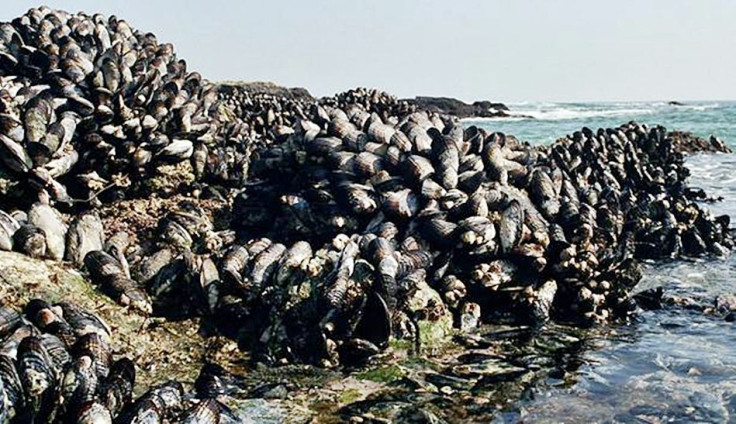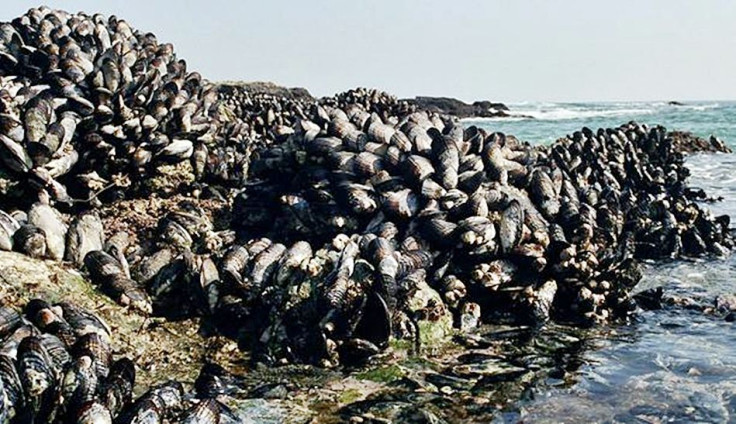Mussels Could Help Clean Up Oil Spills

Insights derived from scientific studies of how marine mussels glue themselves to wet rocks despite the incessant pounding from waves have led to new uses for these tasty bivalves, such as cleaning-up oil spills.
The legendary stickiness of these mollusks is the jump-off point for a study by a group of researchers focused on water clean-up. Of interest to these researchers is the chemical interaction between substances that makes mussels adhere underwater, which is quite a feat.
"It's intuitive to most people that if you're trying to glue things together, you don't even try to do it underwater," said J. Herbert Waite, a distinguished professor at the University of California, Santa Barbara, who studies the biochemistry of marine organisms.
“The main reason is that water, as a molecule, likes to stick to surfaces more than -- and better than -- most glues."
Waite said that by studying how mussels are able to create stickiness beneath the sea, engineers can better understand how surfaces interact with substances amid water. These insights might lead to the development of materials that can help separate water from contaminants.
The stickiness of mussels is due to strands called byssus threads. These strands stream out from their shells like a mass of stringy hairs. Each thread contains an amino acid group called DOPA that helps it bind firmly to nearly any surface underwater.
Engineers have successfully been able to mimic the DOPA secreted by mussels. They took dopamine (which is the same dopamine that plays a part in our brain's reward circuitry) and used it to synthesize a chemical called polydopamine, or PDA.
They found that PDA can be turned into an adhesive similar to that of a mussel's byssus threads.
Seth Darling, a study co-author, and his colleagues explored using PDA to create an interface that repels charged particles and attracts water. This technology might allow the clean-up of wastewater polluted with heavy metals.
Other teams are working on membranes that attract oil but repel water, a technology that could be useful in countering oil spills. The tech has been successfully tested on small oil spills.
"If you put an oil-water mixture against that membrane, the oil will transmit spontaneously through the pores, and the water will stay behind," said Darling, director of the Center for Molecular Engineering at Argonne National Laboratory.

Researchers agree these materials must become more efficient before they're put to practical use.
Darling and his colleagues find the challenges facing mussel-inspired chemistry exciting. He said there's so much more about mussels' stickiness to learn.
He and his team also learned that mussel adhesion might work so well because mussels collaborate as colonies, and combine different amino acids to enhance stickiness.
"Oftentimes, Mother Nature is smarter than us, [because] she's had billions of years to come up with solutions," said Darling. "We're still learning from mussels."



























